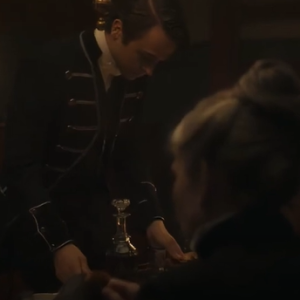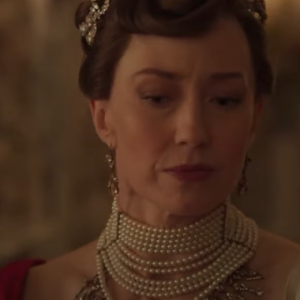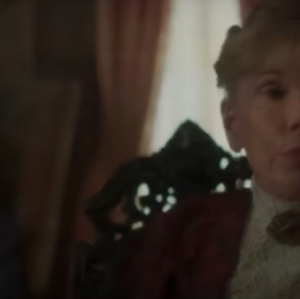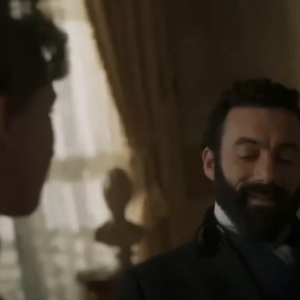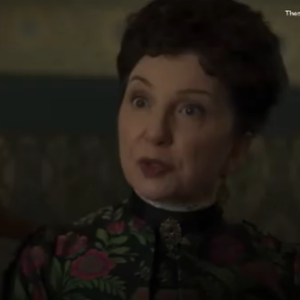Section I: The Dissonance at Newport
The episode opens with a gunshot that fractures more than a single evening; it fractures the illusion that the Gilded Age’s glitter could neatly conceal its storms. Newport becomes not merely a backdrop for summer leisure and murmur of silk and chandeliers, but a crucible where reputations crack and loyalties are tested. The shooting that punctuates the night—visible in the fear-stitched glances of guests, the hurried whispers behind manicured hands—sets into motion a sequence of events that ripples through every layer of the social fabric. On one side, Peggy Scott stands at the center of a moral moment, a young woman who has spent seasons navigating the treacherous seam between affection and obligation. Her courage in confessing long-buried truths to William—truths about a father’s history, a son’s absence, and the ache of a past that refuses to stay buried—introduces a raw, intimate tension into a world built on appearances. The confession is not simply an admission; it is a lit fuse that threatens to unravel the delicate arrangement that the ball season tries so hard to secure. The response, cold and measured, reveals a man who has faced his own temptations and triumphs but now must decide whether a future can be anchored in honesty when the present trembles with rumors and fear. The audience, watching through the lens of a social chronicle, understands that reconciliation is never merely emotional; it is procedural, costly, and dependent on a consensus about what the public can tolerate and what the private can endure. Meanwhile, the mothers—dueling in etiquette and pride—perform a theater of propriety that adds a second layer to the night’s drama. Their exchange—sharp, pointed, and at times almost theatrical in its elegance—becomes a study in how power is negotiated not with swords, but with smiles, with the tilt of a head, with a phrase dropped like a delicate but dangerous ornament. In this world, reconciliation is a currency, and the Newport ball is the bank where it is spent, earned, or held in abeyance. The shooting’s shadow forces characters to confront what they owe to each other and what they owe to the social contract that defines their standing. It is not merely a crisis; it is an opportunity to re-script the chapter of a life that has sometimes felt choreographed by others. As the episode unfolds, the camera lingers on the tension between outward grace and inner catastrophe, reminding us that the Gilded Age, beneath its gold leaf and grand parades, is a landscape where the price of peace is often paid in sleepless nights, careful silences, and the stubborn courage to choose truth over pleasing others. The final act of this section is a thread of choice, woven with the needles of memory and the hope for a future where confession does not have to be the end of love but the beginning of a more honest, durable bond.
Section II: The Ball as Battlefield and Bloom
The Newport ball—its lights, its music, its dresses glittering like constellations—emerges as more than a social event. It is a battlefield where alliances are tested, where a rumor can become a weapon, and where the power of display collides with the vulnerability of personal history. The event’s choreography—every step, every orbiting glance, every whispered exchange—maps the social order with unsettling precision. The ball’s mood oscillates between celebration and tension; it is both a coronation of the season’s victors and a trial by fire for those whose fortunes hang in the balance. Peggy’s decision to trust William with the truth is mirrored by Marian and Marian’s own arc, which threads through the park’s trees and into the ball’s bright rooms. The contrasts are deliberate: a public gesture of engagement, a private gesture of mercy, a political gesture of continuity versus a subversive act of change. The dance floor acts as a microcosm of the era itself, where the body’s movements are signaling devices and the heart’s tempo must align with the music of social expectation. When William interrupts the dance to propose, he embodies a shift from cautious optimism to a bold declaration: love, in its most naked form

